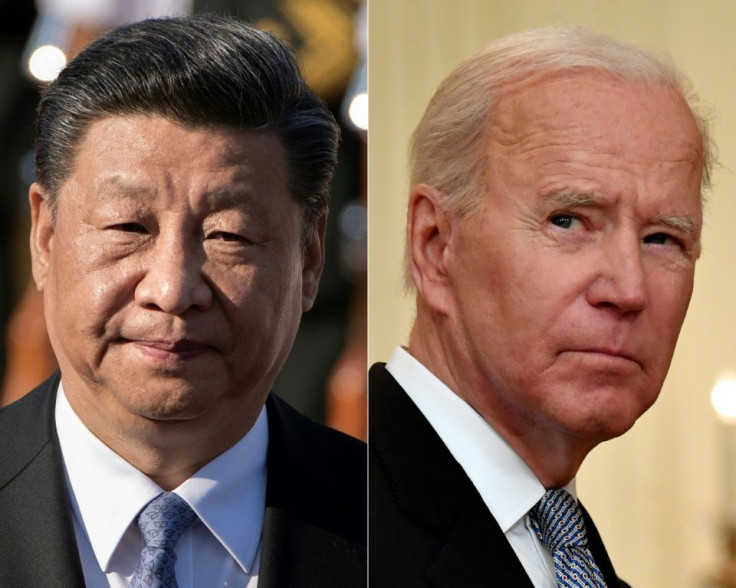Biden Says Xi Agreed To Abide By Taiwan Pact, But There's A Lesson In How Beijing Bamboozled Obama
KEY POINTS
- Obama's intervention over Scarborough Shoal was a loss to Manila
- China never followed the agreement's terms and even militarized the islands
- Taiwan said U.S. policy towards Taiwan had not changed
Amid Taiwan's warning of a looming war with China, President Joe Biden said Tuesday he had a call with Chinese President Xi Jinping and they had agreed to abide by the so-called Taiwan agreement. While Biden's trumpeting of an assurance from Xi may sound comforting amid Chinese incursions and provocative statements, the outcome of another such assurance given by the Chinese leader to the president's one-time boss Barack Obama does not encourage much confidence.
"I’ve spoken with Xi about Taiwan," Biden said. "We agree ... we’ll abide by the Taiwan agreement. We made it clear that I don’t think he should be doing anything other than abiding by the agreement."
The President appeared to be referring to Washington’s long-standing "one-China policy" under which it officially recognizes Beijing rather than Taipei, and the Taiwan Relations Act, which makes clear that the U.S. decision to establish diplomatic ties with Beijing instead of Taiwan rests upon the expectation that the future of Taiwan will be determined by peaceful means, reported Reuters.
Though the Act binds the United States to provide Taiwan with the means to defend itself, Washington acknowledges China's stance that the island belongs to it and that there is only "one China," and takes no position on Taiwan's sovereignty.
But Beijing's assurances really hold little value as can be seen in what is happening elsewhere in the South China Sea. Back in 2012 when tensions erupted between the Philippines and China over the Scarborough Shoal, reefs claimed by both the nations, then President Obama intervened.
The confrontation began when Philippines detained Chinese poachers, only to have Chinese vessels swarm the feature. The shoal, which is 124 nautical miles from the main Philippine island of Luzon and about 550 nautical miles from China’s Hainan Island, is considered significant because it guards Manila and Subic Bays.
After the issue snowballed, Washington brokered an agreement with Beijing and Manila to withdraw from the shoal, but only Manila complied. Result: China claimed the shoal for itself and reclaimed it.
However, the Obama administration did little to punish Beijing for the blatant disregard for the agreement and its subsequent militarizing of the artificial islands. A senior U.S. military official” was quoted by Washington Post at the time, "I don’t think that we’d allow the U.S. to get dragged into a conflict over fish or over a rock."
Reports said through their act of silence and lack of resolve "America empowered the most belligerent elements in the Chinese political system by showing everybody else in Beijing that aggression works."
The question is whether history would repeat itself. Taiwan's hopes for security still hinge on help from the U.S., which has time and again proved a fickle ally -- the latest being in Afghanistan under Biden's watch. Just after Biden's latest comments were out, Taiwan's Foreign Ministry immediately reacted, saying it sought clarification from the U.S. about the same, and were "reassured U.S. policy towards Taiwan had not changed, the U.S. commitment to them was 'rock solid' and that the U.S. will continue to help Taiwan maintain its defenses."
"Facing the Chinese government's military, diplomatic and economic threats, Taiwan and the United States have always maintained close and smooth communication channels," it said, noting recent U.S. comments of concern about China's activities.
Meanwhile, Taiwan has raised concerns that tensions with China are at their worst in 40 years. Taiwanese officials have issued warnings of a possible war with China after Beijing flew a record number of military planes into Taiwan's "Air Defense Identification Zone" between Friday and Monday.

© Copyright IBTimes 2025. All rights reserved.





















